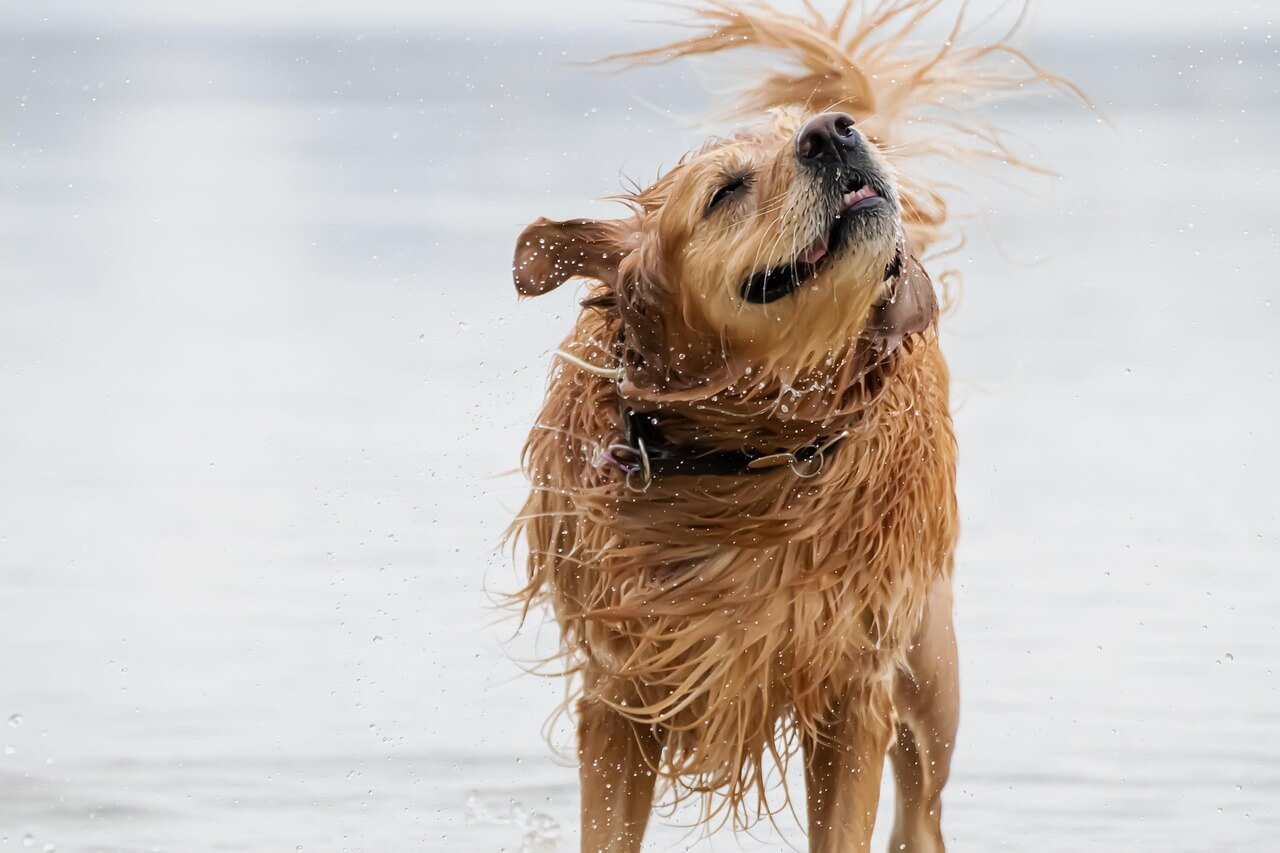What to Do If Your Dog Ate Chicken Bones: Home Remedies and Tips
As a dog owner, you know how curious and food-driven our furry friends can be. Whether it’s sneaking a snack from the trash or gobbling up something dropped on the floor, dogs have a knack for finding trouble. One of the most common mishaps is when a dog accidentally eats chicken bones. While cooked chicken bones can pose serious risks, such as splintering and causing internal injuries, there are steps you can take to help your pet recover safely. In this guide, we’ll explore home remedies, preventive measures, and what to watch for if your dog ate chicken bones.
Immediate Steps to Take After Your Dog Eats Chicken Bones
When you discover that your dog has eaten chicken bones, quick action is essential. Here are some immediate steps you can take to ensure their safety:
Stay Calm and Observe :
Panicking won’t help your dog. Instead, assess the situation calmly. Check if they are showing any signs of distress, such as gagging, drooling, or difficulty breathing.Do Not Induce Vomiting Without Guidance :
While vomiting might seem like a solution, it can actually cause more harm if the bones are sharp or lodged in the throat. Consult a vet before attempting this step.Offer Soft Food or Bread :
Feeding your dog soft food or a piece of bread can help cushion the bones as they pass through the digestive tract. This may reduce the risk of injury.Encourage Hydration :
Keeping your dog hydrated is crucial. Offer fresh water frequently to help the digestive system process the bones more smoothly.Monitor Closely for Symptoms :
Watch for signs like vomiting, diarrhea, lethargy, or abdominal pain. These could indicate complications requiring immediate veterinary attention.
By taking these steps, you can help minimize the risks associated with your dog eating chicken bones. However, always remember that professional advice is invaluable in such situations.
Home Remedies to Support Your Dog’s Recovery
If your dog ate chicken bones, there are several home remedies you can try to support their recovery. While these methods are not substitutes for professional care, they can provide additional comfort and aid digestion.
Pumpkin Puree :
Pumpkin is rich in fiber and can help regulate your dog’s digestive system. Mix a tablespoon of plain pumpkin puree into their food to ease bowel movements.Plain Yogurt :
Probiotics found in plain yogurt can promote healthy gut bacteria, aiding digestion. Ensure the yogurt is free from added sugars or artificial flavors.Canned Pumpkin or Sweet Potato :
Similar to pumpkin puree, canned pumpkin or boiled sweet potato can act as a natural stool softener, helping bones pass more easily.Bone Broth :
Warm, unseasoned bone broth is both hydrating and soothing for your dog’s stomach. It also provides nutrients to support their overall health.Aloe Vera Gel (Pet-Safe) :
Pet-safe aloe vera gel can soothe an upset stomach. Always ensure the product is specifically formulated for dogs to avoid toxicity.
These remedies can complement your efforts to keep your dog comfortable while the bones pass naturally. However, if symptoms worsen, seek veterinary care immediately.
Check this guide 👉Can Dogs Eat Rib Bones? Best 7 Health Tips!
Check this guide 👉Can Dogs Eat Chicken Nuggets? Best 7 Health Tips!
Check this guide 👉Can Dogs Eat Turkey? Best 7 Health Tips!

Preventive Measures | Signs of Complications |
|---|---|
Store food securely out of reach | Vomiting or retching |
Supervise mealtime closely | Blood in stool or vomit |
Avoid feeding cooked bones | Lethargy or loss of appetite |
Train “leave it” commands | Difficulty breathing or swallowing |
Use pet-proof trash bins | Abdominal swelling or pain |
How to Prevent Future Incidents
Prevention is always better than cure. By implementing a few simple strategies, you can reduce the likelihood of your dog eating chicken bones again.
Teach Basic Commands :
Training your dog to respond to commands like “drop it” or “leave it” can prevent them from consuming dangerous items.Use Secure Trash Bins :
Dogs are notorious for raiding trash cans. Invest in pet-proof bins to keep harmful foods out of reach.Supervise Outdoor Time :
During walks or playtime outside, keep an eye on what your dog picks up. Discourage them from chewing on random objects.Provide Safe Chewing Alternatives :
Offer durable, safe chew toys to satisfy your dog’s natural urge to gnaw. This reduces the temptation to chew on inappropriate items.Educate Family Members :
Ensure everyone in the household understands the importance of keeping harmful foods away from your dog.
By adopting these preventive measures, you can create a safer environment for your pet and avoid future scares.
When to Seek Veterinary Care
While home remedies can be helpful, certain situations demand immediate veterinary intervention. Knowing when to seek professional help is critical for your dog’s well-being.
Persistent Vomiting or Diarrhea :
If your dog continues to vomit or experience diarrhea, it could indicate an obstruction or internal injury.Visible Pain or Discomfort :
Whining, restlessness, or reluctance to move may signal that the bones are causing significant discomfort.Difficulty Breathing :
Labored breathing or coughing could mean that a bone fragment is lodged in the throat or airway.Loss of Appetite :
Refusal to eat or drink over 24 hours is a red flag that something is seriously wrong.Blood in Stool or Vomit :
The presence of blood indicates potential internal damage and requires urgent medical attention.
If any of these symptoms occur, don’t delay—contact your veterinarian right away. Early intervention can make all the difference.
Common Mistakes to Avoid
When dealing with a dog who has eaten chicken bones, it’s easy to make mistakes out of panic or misinformation. These errors can sometimes worsen the situation, so it’s important to know what not to do.
Do Not Ignore the Situation :
Assuming the problem will resolve itself can lead to complications. Even if your dog seems fine, monitoring them is essential.Avoid Feeding Hard Foods Immediately :
Hard foods like kibble or raw carrots may cause further irritation if the bones are sharp or lodged in the digestive tract.Don’t Delay Veterinary Care :
Waiting too long to seek professional help can result in severe consequences, such as internal injuries or infections.
By avoiding these common pitfalls, you can ensure your dog receives the best possible care and reduce the risk of complications. Always prioritize their safety over convenience or assumptions.
Signs Your Dog Is Recovering Well
After taking immediate action, it’s important to recognize signs that your dog is recovering well from eating chicken bones. These indicators can provide peace of mind and confirm that your efforts are working.
Normal Bowel Movements :
If your dog’s stool appears regular and free of blood or bone fragments, it’s a good sign that the bones are passing safely.Increased Energy Levels :
A return to playful behavior and normal activity levels suggests that your dog is feeling better.Steady Appetite :
Eating and drinking normally indicates that there’s no significant discomfort or obstruction in the digestive system.No Visible Pain :
If your dog is relaxed, comfortable, and not showing signs of abdominal pain, it’s likely they’re on the mend.Clear Breathing :
Easy, unlabored breathing confirms there’s no blockage or injury in the throat or airway.
These positive signs are reassuring, but always remain vigilant. If anything seems unusual, don’t hesitate to consult your veterinarian for confirmation.
Safe Alternatives to Chicken Bones
If your dog enjoys chewing or gnawing on bones, it’s important to provide safe alternatives to satisfy their natural instincts without risking their health. Here are some options to consider:
Rubber Chew Toys :
Durable rubber toys designed for aggressive chewers are a safe way to keep your dog entertained and satisfied.Edible Dental Chews :
Specially formulated dental chews can clean teeth while providing a tasty and safe chewing experience.Rawhide-Free Treats :
Opt for rawhide-free alternatives made from natural ingredients like sweet potato or yak milk for safer chewing.Frozen Carrots :
Frozen carrots are a healthy, low-calorie option that can soothe your dog’s gums and satisfy their urge to chew.Bully Sticks :
High-quality bully sticks are fully digestible and provide hours of chewing fun without the risks associated with bones.
By offering these safe alternatives, you can redirect your dog’s chewing habits and prevent future incidents involving harmful items like chicken bones. Always supervise your dog during playtime to ensure their safety.
FAQ
Are chicken bones dangerous for dogs?
Yes, cooked chicken bones are particularly dangerous because they can splinter and cause injuries to the mouth, throat, or digestive tract.
Can I give my dog bread after they eat chicken bones?
Yes, offering soft bread can help cushion the bones as they pass through the digestive system. However, consult your vet first.
How long does it take for chicken bones to pass through a dog’s system?
Typically, it takes 1-3 days for bones to pass, but this varies depending on the size of the dog and the bones consumed.
What should I do if my dog shows no symptoms?
Even if your dog seems fine, monitor them closely for at least 72 hours. Some complications may take time to develop.
Can raw chicken bones be fed to dogs?
While raw bones are less likely to splinter, they still carry risks like choking or bacterial infections. It’s best to avoid feeding any type of chicken bones.
Final Thoughts: Keeping Your Dog Safe
Accidents happen, but being prepared can make all the difference when your dog eats something they shouldn’t. From staying calm and monitoring symptoms to trying safe home remedies, you now have the tools to handle the situation effectively. Remember, prevention is key—secure food, supervise your pet, and educate others in your household. Most importantly, trust your instincts. If something feels off, don’t hesitate to contact your vet. With love, care, and vigilance, you can ensure your furry friend stays happy and healthy for years to come.
Do Cats Have Taste Buds? Best 7 Expert Tips! – Discover how cats experience flavors and why their taste is so unique.
Do Dogs Have Taste Buds? Best 7 Expert Tips! – Discover how dogs experience taste, their preferences, and what it means for their diet and health.
Can Cats Taste Sweet? Best 7 Expert Tips! – Discover why cats can’t taste sweetness, how it affects their diet, and tips to keep them healthy and happy.
Can Dogs Taste Sweet? Best 7 Expert Tips! – Discover how dogs perceive sweetness, which foods are safe, and tips to manage their sweet cravings responsibly.





